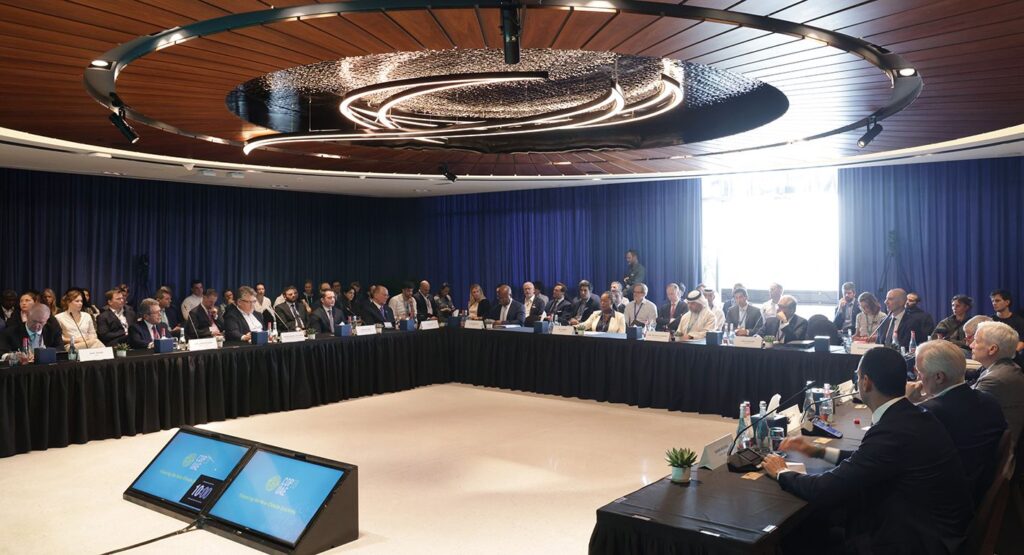Navigating Climate Dichotomies: Africa’s Role and Strategies at COP
In the complex landscape of international climate negotiations, Africa finds itself navigating dichotomous priorities and varied interests among its constituent states. From the Alliance of Small Island States (AOSIS) urgently advocating for climate action to combat rising sea levels to the Organization of the Petroleum Exporting Countries (OPEC) pushing to protect oil production interests, African states are often pulled in different directions. This tension exemplifies the broader challenges faced by the Africa Group—a formal bloc representing the continent at the United Nations Climate Change Conferences (COP).
The Africa Group: Structure and Consensus-Building
Established to consolidate and amplify Africa’s voice on the global stage, the Africa Group employs a meticulous three-tiered system to build consensus on climate change issues. This system comprises the Committee of African Heads of State and Government on Climate Change (CAHOSCC), the African Ministerial Conference on the Environment (AMCEN), and the African Group of Negotiators (AGN).
CAHOSCC, founded in 2009, provides high-level political leadership and approval for climate positions formed by the AGN. This subcommittee of the African Union (AU) involves countries from each of the continent’s five regions, alongside leaders from countries chairing the AU, AMCEN, and others. The rotating nature of its chairmanship ensures diverse representation, although information about its specific mandates and funding remains sparse.
AMCEN functions as a biennial congregation of African environment ministers since its inception in 1985. It offers environmental guidance to the AGN, with the UN Environment Programme (UNEP) acting as its permanent secretariat.
AGN, established in 1995, serves as the technical arm, drafting common positions and strategies to be adopted by African ministers. Regular inter-sessional conferences, supported by entities like the UN Economic Commission for Africa, help to streamline these positions. Eleven thematic climate issues currently guide the AGN’s focus, including adaptation finance, gender, and carbon pricing.
Despite the structured approach providing Africa with a unified voice, the consensus-building process can be slow, hampering agility in negotiations.
Civil Society and Indigenous Representation
Civil society organizations (CSOs) including indigenous groups, youth, and journalists, have a pivotal, albeit limited, role at COP. Primarily participating as observers, these groups offer expertise, aid in agenda framing, and mobilize public support through various strategies. For instance, African indigenous groups like the Indigenous Peoples of Africa Co-ordinating Committee (IPACC) strive to bring grassroots voices to the forefront but often face marginalization and insufficient funding.
African youth, represented by groups such as the African Youth Initiative on Climate Change, navigate challenges like systemic inequalities and lack of access to political platforms, despite being formally recognized within the Youth Non-Governmental Organization (YOUNGO) framework.
The Role of Media and Environmental NGOs
African and international journalists are instrumental in amplifying key climate issues, although they must balance reporting against narratives that unjustly cast African states as climate culprits. Media coverage often skews towards crisis reporting, which may disconnect broader public understanding from everyday realities of climate change.
Environmental NGOs, though official observers, play crucial roles in bridging technical knowledge gaps and advocating for transparency and climate justice. For instance, at COP28 in 2023, African environmental NGOs in tandem with the African Development Bank set forth priorities that were successfully integrated into the conference agenda, highlighting the potency of NGO advocacy.
Research Institutions: The Data Backbone
Research organizations based in Africa enrich climate negotiations with essential data and research. South Africa, Kenya, Nigeria, Ghana, and Rwanda host several key institutions conducting studies in areas like sustainable agriculture and water governance. These organizations provide policymakers with the data-driven evidence necessary to argue African priorities effectively at COP.
Conclusion
Africa’s journey at each COP involves negotiating a labyrinth of competing interests and priorities. The Africa Group’s structured approach to consensus-building, combined with the vibrant contributions from civil society, indigenous groups, youth, journalists, NGOs, and research institutions, forms a multifaceted strategy to ensure that African voices are heard and acted upon in global climate discussions.
For further information on the Alliance of Small Island States (AOSIS), you can visit their official website.
